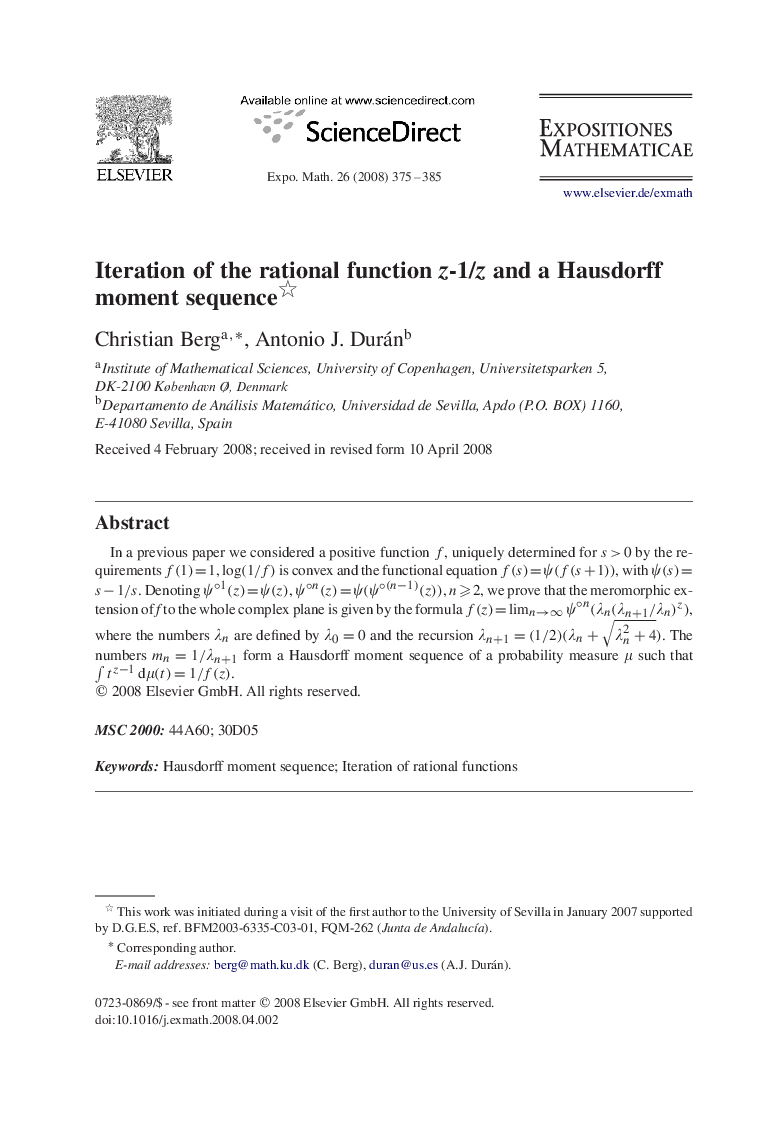| Article ID | Journal | Published Year | Pages | File Type |
|---|---|---|---|---|
| 4582576 | Expositiones Mathematicae | 2008 | 11 Pages |
Abstract
In a previous paper we considered a positive function ff, uniquely determined for s>0s>0 by the requirements f(1)=1f(1)=1, log(1/f)log(1/f) is convex and the functional equation f(s)=ψ(f(s+1))f(s)=ψ(f(s+1)), with ψ(s)=s-1/sψ(s)=s-1/s. Denoting ψ∘1(z)=ψ(z)ψ∘1(z)=ψ(z), ψ∘n(z)=ψ(ψ∘(n-1)(z))ψ∘n(z)=ψ(ψ∘(n-1)(z)), n⩾2n⩾2, we prove that the meromorphic extension of f to the whole complex plane is given by the formula f(z)=limn→∞ψ∘n(λn(λn+1/λn)z), where the numbers λnλn are defined by λ0=0λ0=0 and the recursion λn+1=(1/2)(λn+λn2+4). The numbers mn=1/λn+1mn=1/λn+1 form a Hausdorff moment sequence of a probability measure μμ such that ∫tz-1dμ(t)=1/f(z).
Keywords
Related Topics
Physical Sciences and Engineering
Mathematics
Algebra and Number Theory
Authors
Christian Berg, Antonio J. Durán,
